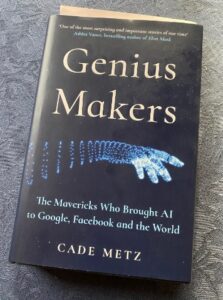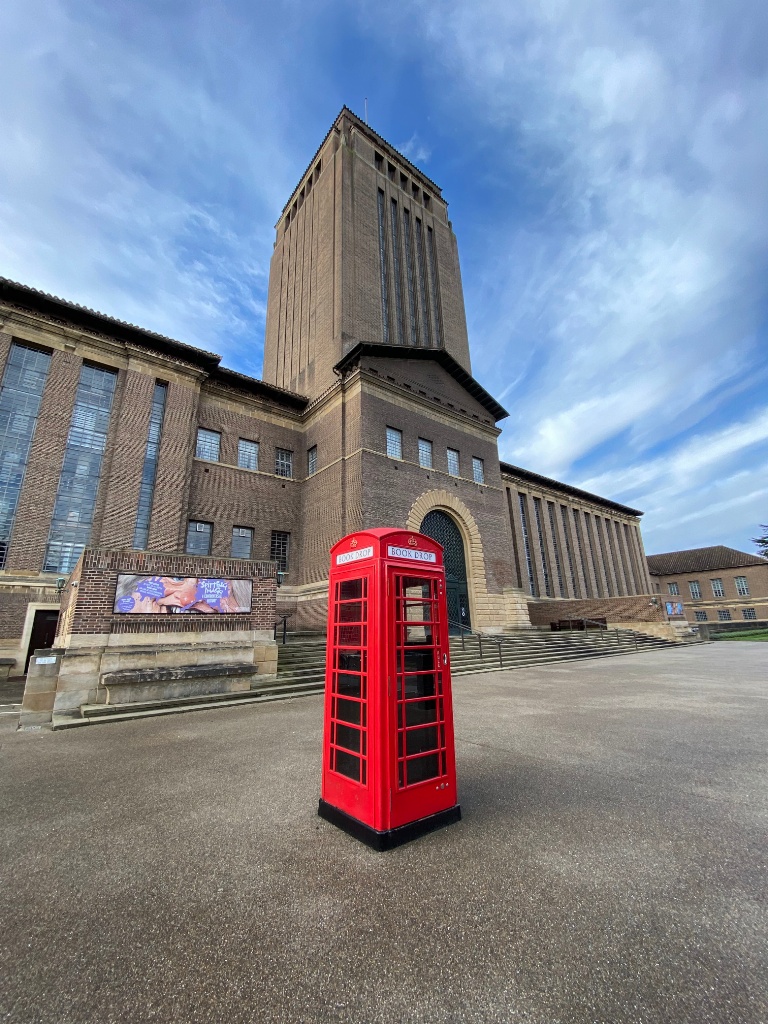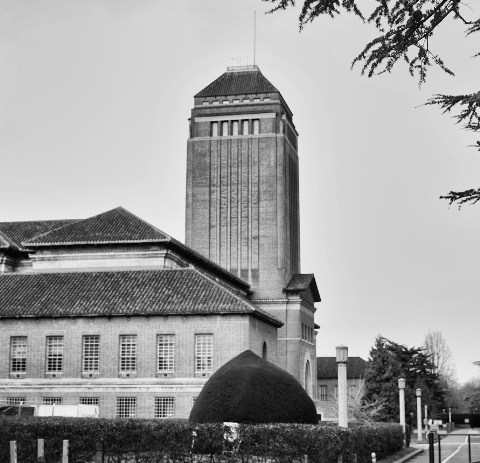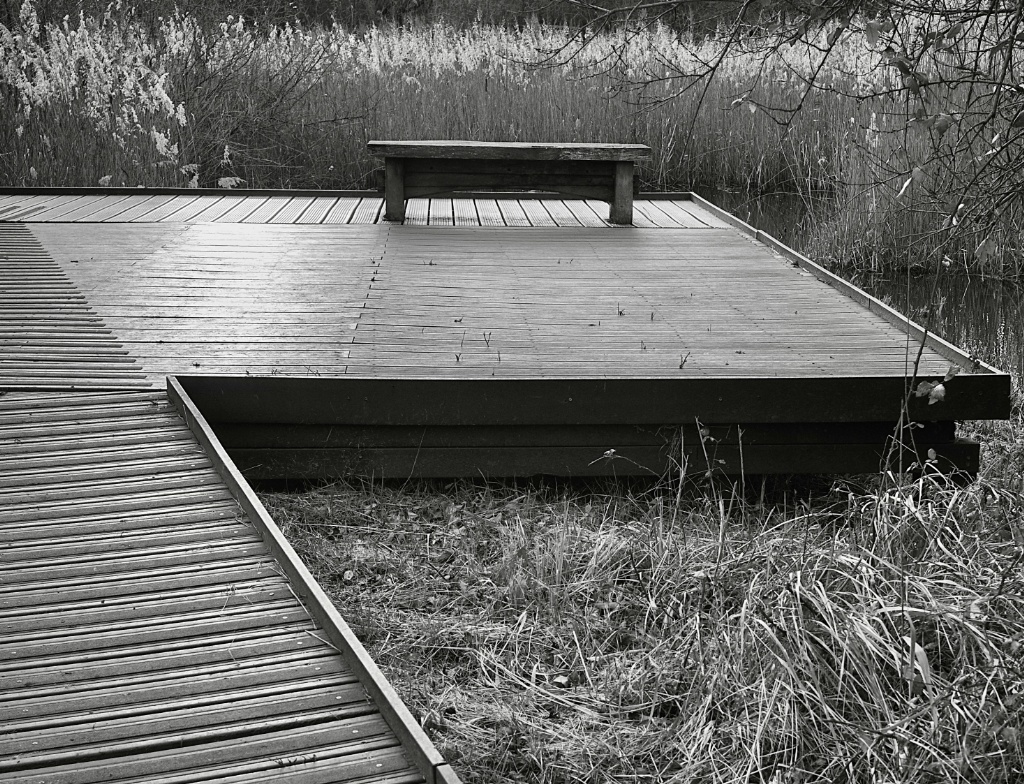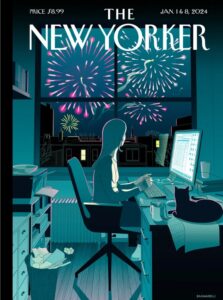Swans’ Lake
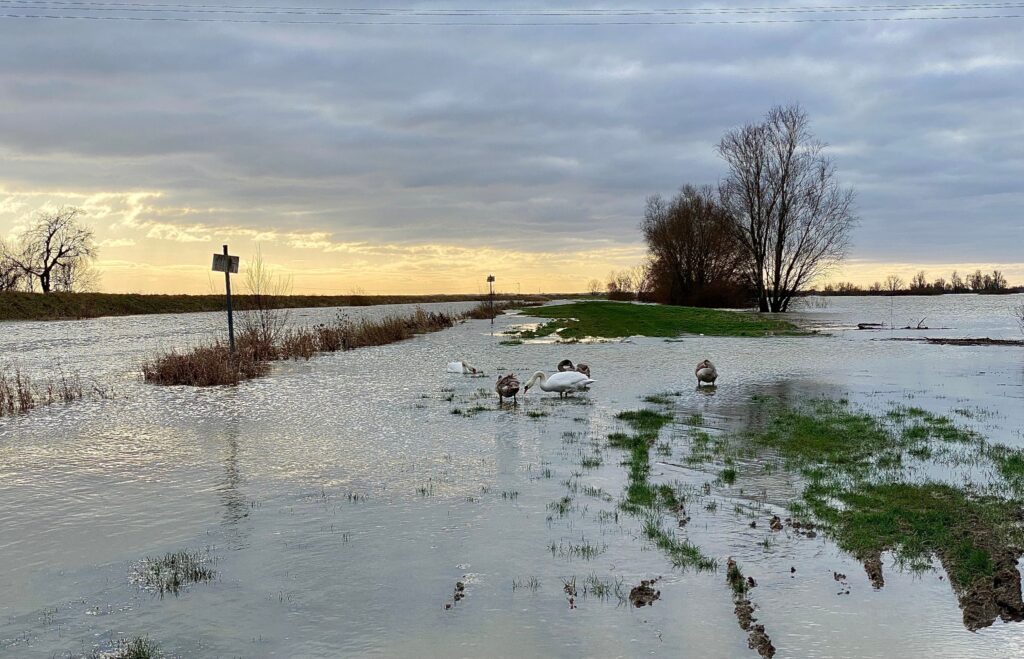
Photographed at Sutton Gault in the Cambridgeshire fens, yesterday.
Background: A significant portion of East Anglia (about 1,500 square miles) is flat and lies below sea-level. Until the 17th century this was mostly ‘fen’ or marsh (and therefore no good for farming). But then a group of aristocratic opportunists like the Duke of Bedford, aided and abetted by wealthy merchants from the City of London, decided that if these fens were drained, a large amount of arable land could be created. And so they set to it. (The merchants btw were called ‘Adventurers’ because they were supposedly risking their capital in the venture — so they were the first ‘venture capitalists, and thus the spiritual ancestors of the Silicon Valley crowd in Sand Hill Road. Except, of course, that the current lot risk other peoples money, not their own.)
The story of how the massive engineering and hydraulic engineering project to drain the Fens was carried out is interesting but need not detain us here. A key part of it involved the construction of two huge, parallel, elevated, canal-like ‘drains’ — called the New Bedford and Old Bedford rivers — into which water from the low-lying marshes was pumped and then ferried to the North Sea. These two parallel canals had an interesting design feature: their inside walls were slightly lower than the outside ones — which means that at times of heavy rainfall the overflow in the drains cascaded over into the corridor of land that lay between them, creating a massive inland lake.
There was a lot of heavy rain in the last couple of weeks and so yesterday we set out to Sutton Gault to see how the late Duke’s waterworks were faring. Sure enough, they were working fine. And had made a fine lake for a family of swans.
Quote of the Day
Nate Silver, when asked, “Gun to your head, who is going to win: Trump or Biden?”
His answer:
”Shoot me.”
(Silver is the American statistician who persuaded me in 2016 that Hilary Clinton would win the Presidential election. His reputation is not what it was.)
Musical alternative to the morning’s radio news
Freddie White | Tenderness On the Block
Long Read of the Day
Between the Algorithm and a Hard Place: The Worker’s Dilemma
Really thoughtful piece by Diana Enríquez on the problems you encounter when your ‘manager’ is an algorithm rather than a human.
Today you’re supposed to drop off a package in a location outside the route provided by the AmazonFlex app’s map. The passenger needs to go somewhere and the app wants you to drive on a street that you know has very hazardous road conditions. You also know that the app is always tracking your location and how closely you stick to the “optimized route.” You’ve heard from other drivers that you might get a warning and a strike against you if you go too far off route. Too many strikes means you’ll lose your flexible job, and the supplemental income that is helping you pay your bills.
You have two options:
Break the rules but complete the goal – you decide to leave the route and reach your destination, though it is outside the tracked route. Or, you avoid the hazardous road because you are responsible for maintaining your car and you get to the end destination without any damage. You wait a few days to see what happens… and you get an automated email warning you that your driver score was marked down by your passenger for taking a “longer route” or a warning saying they needed to check whether or not you delivered the final package because they saw you left the optimized route.
Follow the rules but at a heavy cost – you’ve heard too many stories about people being deactivated for not obeying the app’s guidance, so you stick to the route and try to figure out how to reach your final goal anyway. You take the short route but damage your car.
And there’s no human to whom you can explain your decision.
More and more workers face this kind of problem every day. Whenever I see an Amazon driver in our locality I give him a friendly wave. He probably thinks I’m potty. But what I’m really thinking is how glad I am not to have work like he does.
Substack’s Nazi problem
Yesterday’s Observer column:
Substack was founded in 2017 by two geeks, Chris Best and Jairaj Sethi, and a journalist, Hamish McKenzie. It grew rapidly, partly because it looked like a lifeboat to many journalists and writers who could see the writing on the wall for conventional media organisations. It enabled prominent hacks working for prestigious publications to monetise their celebrity, or at least get paid for writing online. (Substack had teamed up with the online payments processor Stripe to make it easy to charge some of the writers’ subscribers a monthly fee; if they did charge, then Substack took a cut of their earnings.) … But, in a way, the money is a side issue: most Substacks are free. What’s important is that, as social media degenerates into fragmented chaos, Substack has evolved into a significant part of our culture’s public sphere. Some of the most thoughtful long-form writing around nowadays can be found on the platform.
From the outset, the founders were emphatic about their commitment to free speech…
A life worth living
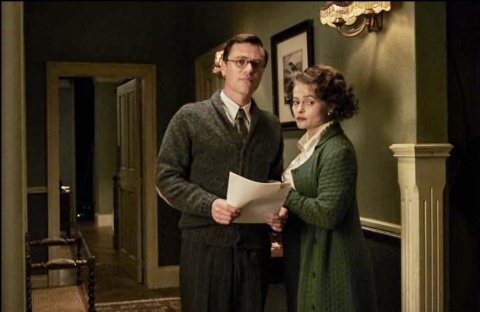
Johnny Flynn as the young Winton and Helena Bonham-Carter as his iron-willed mother.
At the weekend we went to see One Life, the story of Nicholas Winton, the young London stockbroker who organised the Kindertransport trains which saved 639 children from the Nazis. It has some wonderful performances — particularly by Anthony Hopkins as the elderly Winton and Johnny Flynn as him as a young man; and by Helena Bonham-Carter as Winton’s mother. And it’s a truly inspiring story. Life-enhancing, you might say. Do see it.
The trailer is here.
My commonplace booklet
Tim Brighouse, the great, charismatic educationist and campaigner for state schools, died recently.
His son Harry told this nice story of an exchange he had on his way back to the US after the funeral:
”The chap serving me at Pret in Heathrow the other day asked if I was going somewhere special for Christmas, and for the second time since Tim died I faltered, and said “I’m going home to Wisconsin, I’ve just been visiting because my dad died on Friday”, and berated myself inside for making him uncomfortable. But he smiled, and said, you know the usual things, and then said “Did he have a good life?” and I found myself grinning widely and said “Yes. He had a great life”, to which his response was “That’s really the best you can ask, isn’t it?”. It was lovely, like something out of the kind of movie that neither my dad nor I would ever willingly watch.”
Remembering Niklaus Wirth
Lovely obituary in The Register by Liam Proven.
Linkblog
Something I noticed, while drinking from the Internet firehose.
- 52 interesting things Jason Kottke (Whom God Preserve) learned in 2023. Link
This Blog is also available as an email three days a week. If you think that might suit you better, why not subscribe? One email on Mondays, Wednesdays and Fridays delivered to your inbox at 6am UK time. It’s free, and you can always unsubscribe if you conclude your inbox is full enough already!



